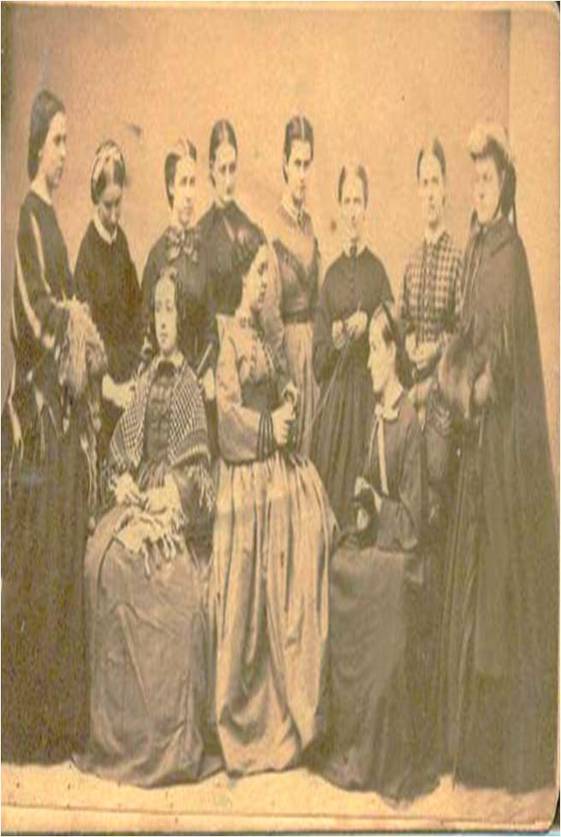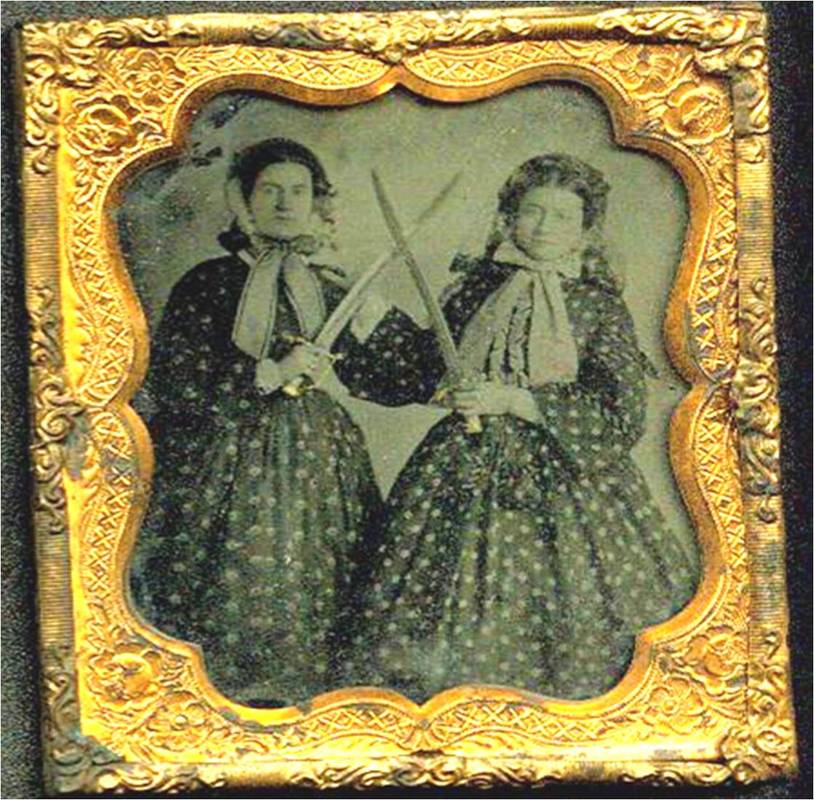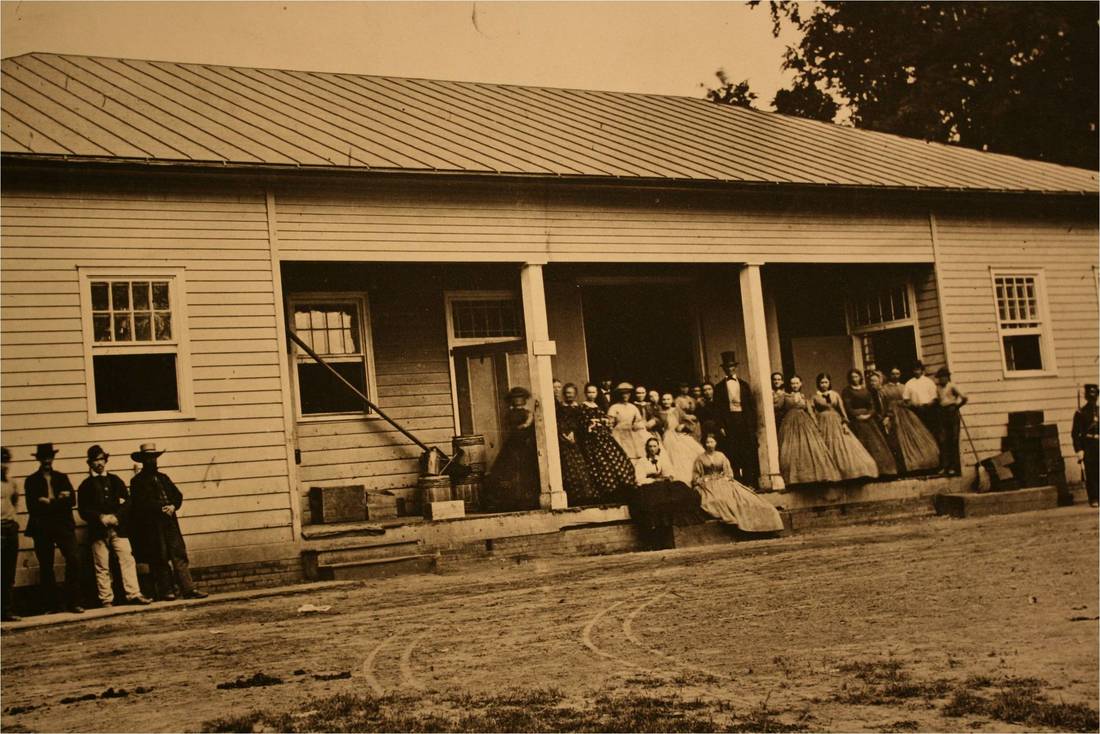
"This first is a tintype of two women who posed for their photograph with Enfield bayonets. I interpret this photo as being representative of the moral, social, and psychological support of women for the war.
This second is an albumen print of a group of workers posed in front of the Washington Arsenal. Nearly two dozen individuals died in an explosion at this facility in June, 1864. They, and tens of thousands of other civilians worked in manufacturing facilities like or in their own homes during the war producing the food, shelter (tentage) clothing (uniforms), arms and ammunition (like this facility) that was absolutely essential to soldiers. This photo is often cropped to exclude the men at the left, but they are part of the story, too.
The third is a group of women with needlework/sewing projects. Millions of women ‘fought with needles’ of various sorts, providing soldiers with uniforms, socks, and other necessities."
Again, I thank our author for providing us with supplementary narrative and imagery.
Assignment Instructions
In the comments below, please answer the following questions and respond to someone else's comment.
1. What is it that determines – or should determine -- whether a civilian’s particular role in the Civil War was important?
2. What information from this Civilian Influence on the Military do you think would be most important to share with our military reenactor friends?
3. What information from this chapter was most useful for you? Why?
Please post your comments within a week, so we have the following week to make responses. Please read Chapter IV: Civilian Participation in the War by March 15th and return on that day for the next installment of this exciting discussion.
Thank you for participating.
Den Bolda


 RSS Feed
RSS Feed
